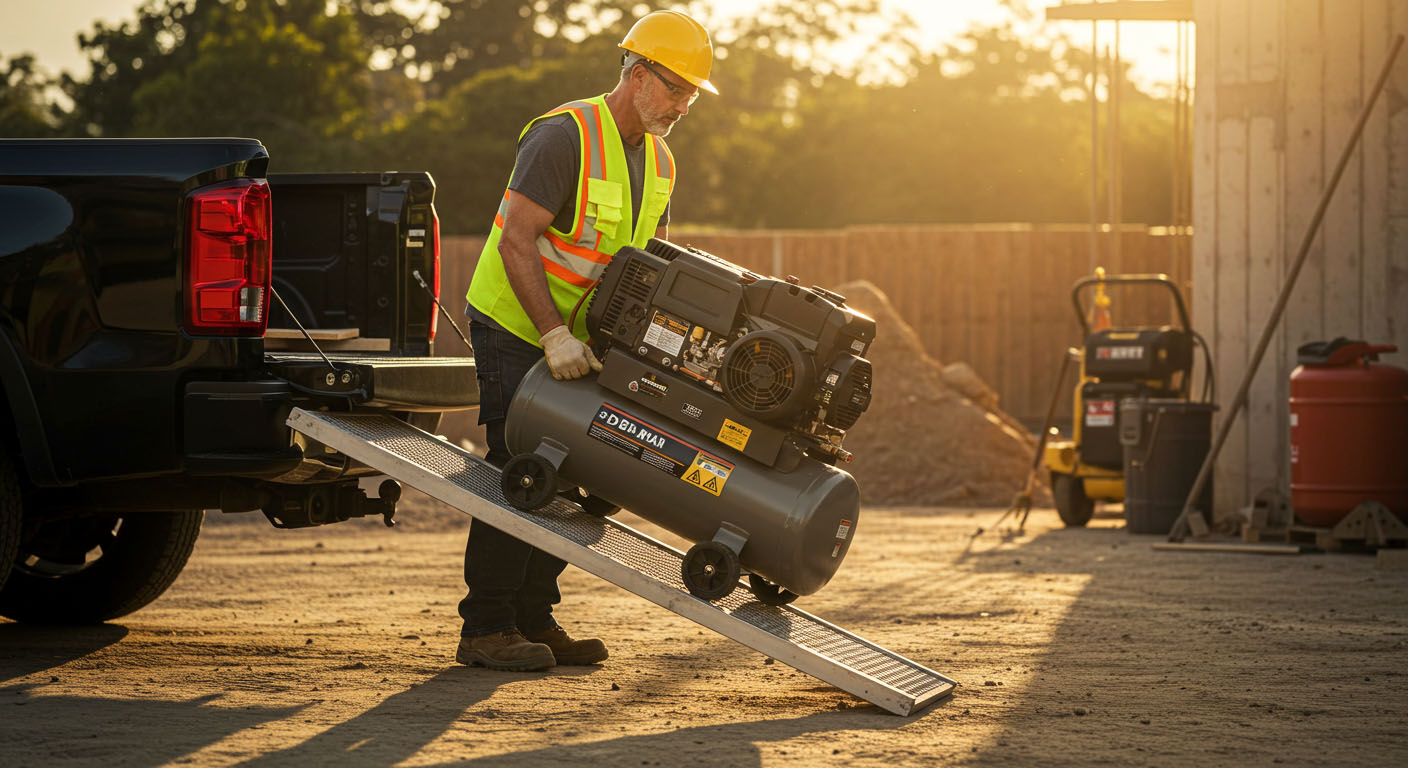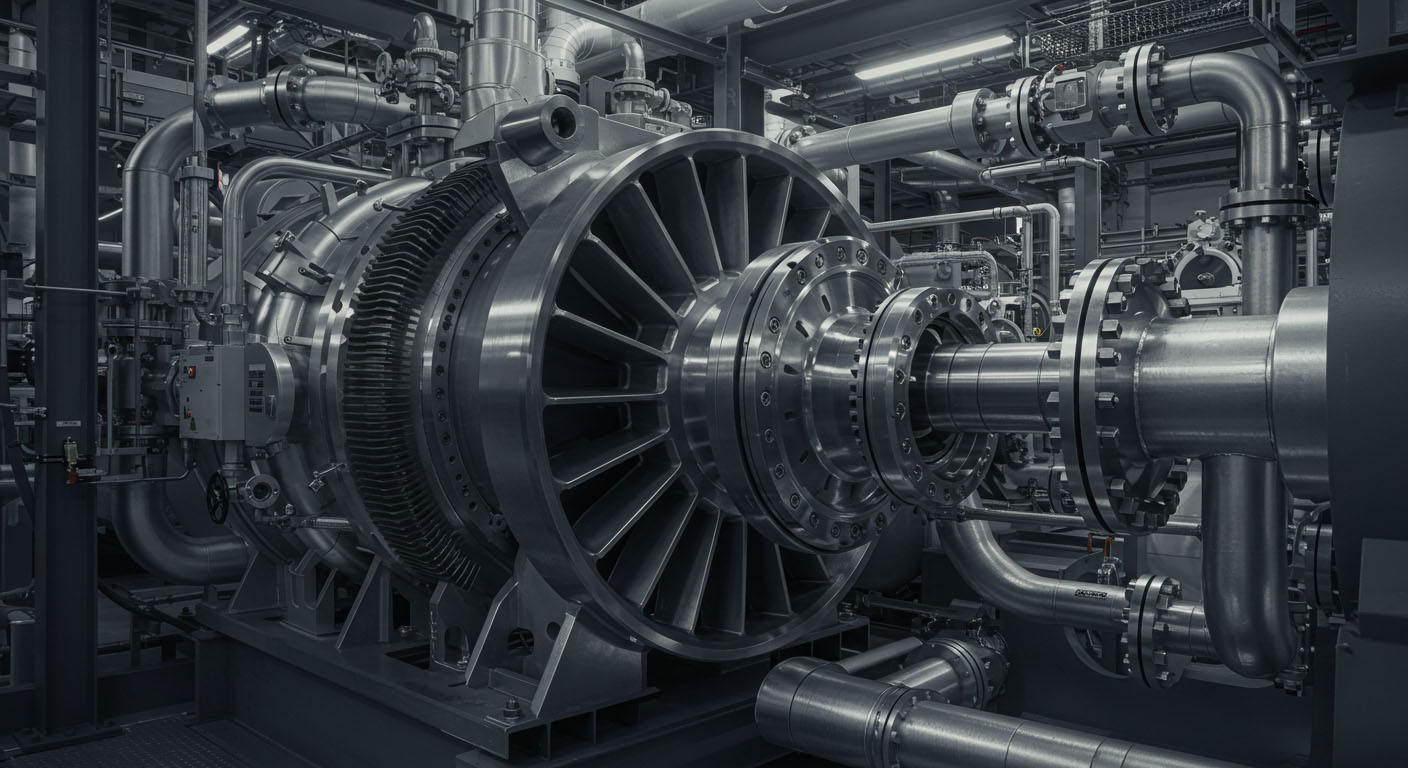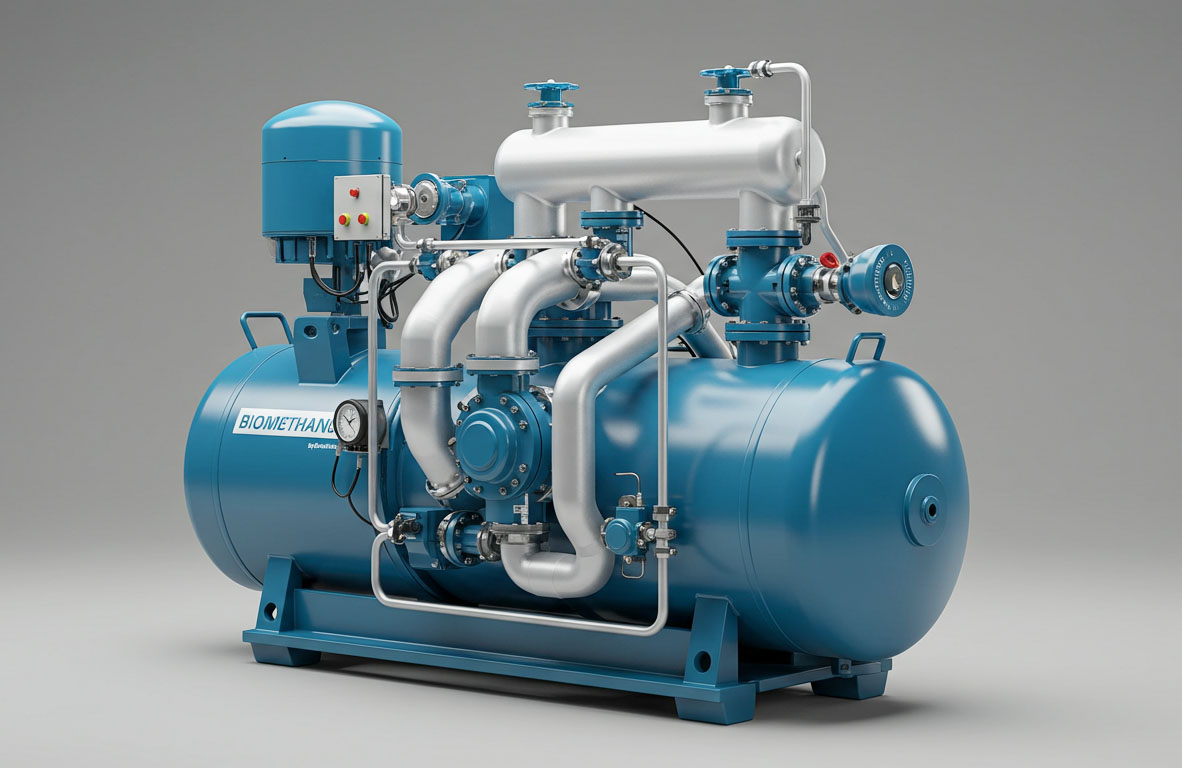Understanding Ammonia Compressor: A Comprehensive Guide
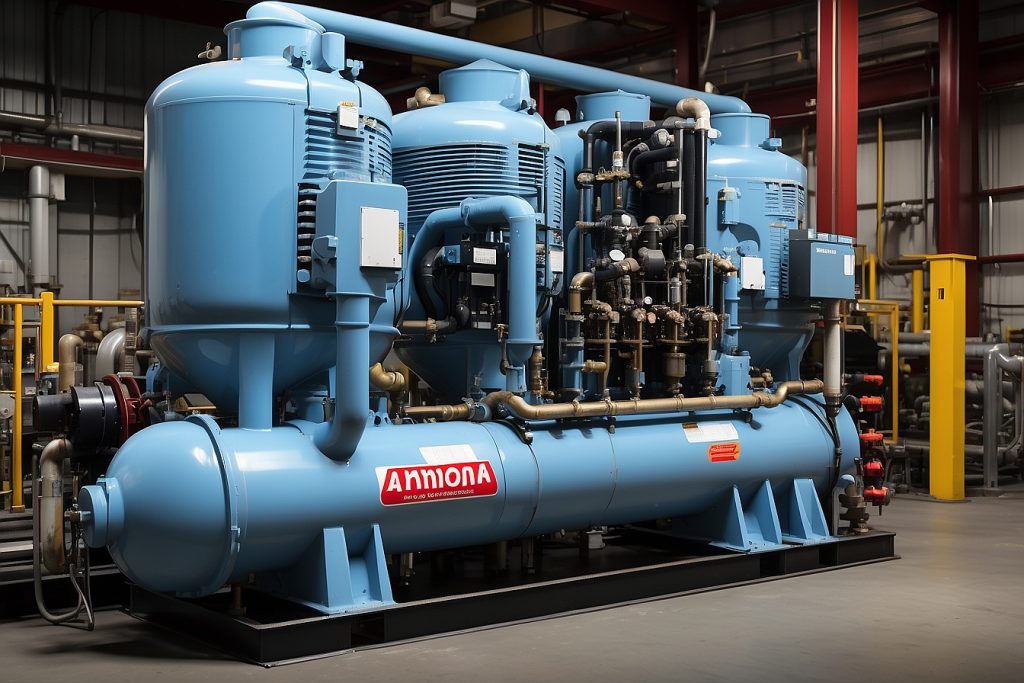
Explore the role of ammonia compressor in refrigeration systems, their maintenance, and safety. That guide has everything you need to know about ammonia, like its properties and how to handle risks. It also explains the different types of compressors. Find out how these systems work and their impact on the environment in industrial settings. Learn the best practices for efficient operation.
What is the ammonia compressor?
An ammonia compressor is a key part of a refrigeration system. It pumps ammonia gas, helping to cool things down in places like factories or big kitchens. It’s like the heart of the system, keeping everything cold and working right.
Ammonia Compressor Maintenance
Regular checks and repairs must be conducted on ammonia compressors to keep them operating effectively, which includes inspecting all parts, checking their cleanliness, replacing worn-out ones when necessary and monitoring for potential issues within the refrigeration system. Doing this helps ensure everything runs safely.
Ammonia Basics
Ammonia is a potent chemical widely used in refrigeration systems for its excellent ability to dissipate heat transfer, making it the ideal way to keep things cold. Due to the powerful nature of ammonia’s chemical makeup, Educorpus its compressors must be handled carefully to avoid potential risks that come from its power.
Ammonia Refrigeration Systems Work
Ammonia refrigeration systems enact their functions through various components, with ammonia gas moving between components through different means to operate efficiently. A compressor compresses this gas, before cooling down into liquid form which acts like an enormous air conditioning unit to dispel heat away from its surroundings and absorb it instead.
Ammonia Leaks and Their Source
Ammonia leaks may result from cracks or holes in your refrigeration system, worn-out parts or human error – it’s essential that you regularly inspect it to detect early and fix leaks before they cause irreparable harm to its operation.
Risks Associated With Ammonia Leaks
Ammonia leaks can be extremely hazardous. Not only could they cause health concerns for nearby individuals and damage the environment, they’re also essential in terms of keeping us all safe – this makes having safety precautions in place and routinely inspecting refrigeration units to detect signs of any possible leaks essential.
How to Manage Ammonia Compressor Risk
Maintaining an ammonia compressor involves regularly inspecting and servicing its system, from training staff in safe handling of ammonia through alarm detection for leak detection to having plans ready in case there’s an unexpected incident such as an explosion or leakage.
Ammonia Compressor Maintenance Tips
Maintain an ammonia compressor by regularly cleaning and inspecting all its parts, replacing worn components as soon as they appear, using appropriate tools and safety gear, and adhering to manufacturer recommendations for care and use. Routine care ensures optimal refrigeration system operation without creating issues in its wake.
How to work an ammonia compressor?
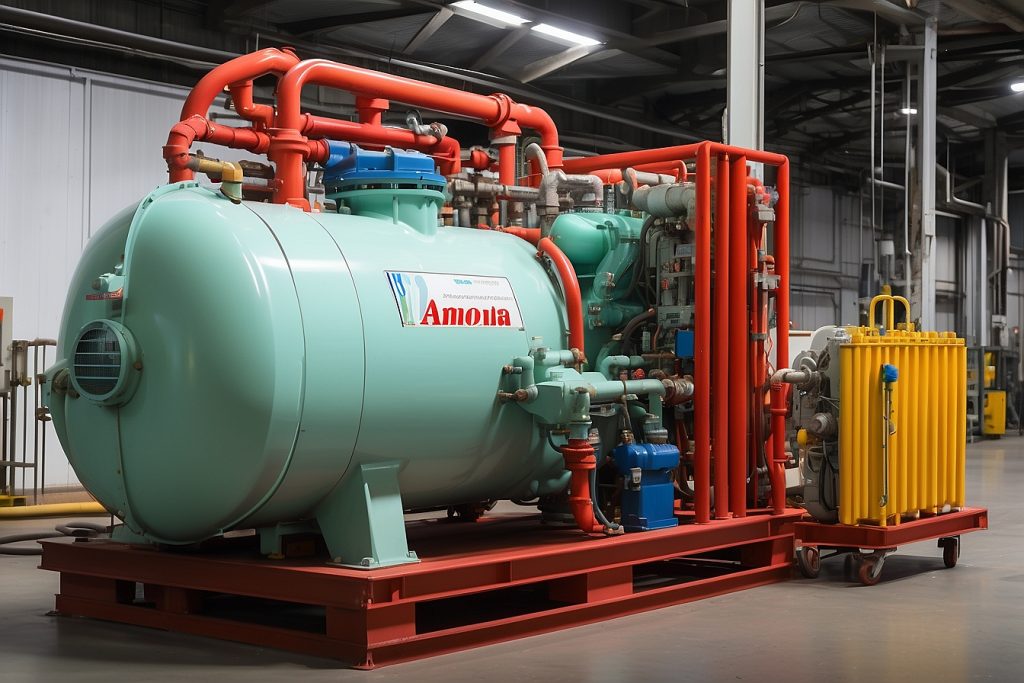
An ammonia compressor in a refrigeration system moves ammonia gas around to keep things cold; compressing it so as to maintain optimal conditions in cold rooms or ice-making plants. This device plays an essential part in keeping temperatures within reasonable parameters for proper functioning.
Operating an Ammonia Compressor
Start an ammonia compressor up by activating its control system; that starts the compression of ammonia gas. Ammonia compressors can be found in industrial settings like cold room plants or ice-making plants and should always follow safety regulations to use as intended – personnel should receive training on handling ammonia, which may prove hazardous, correctly.
Ammonia Compressor Safety Precautions
Safety should always be of top concern when operating an ammonia compressor, due to ammonia’s potential as both an irritant and flammable substance. Proper ventilation, protective gear wear and an alarm system must all be considered measures against ammonia leaks; and maintain refrigerant levels accordingly. Personnel must receive training in occupational health standards such as recognising its smell as well as its effects.
Physical Properties of Ammonia in Compressors
Ammonia used in compressors is an anhydrous fluid with high latent heat and low boiling point; these properties make it suitable for refrigeration cycles of both vaporization and condensation, providing efficient vaporization/condensation vaporization/condensation cycles in compressors as well as effective cooling in both industrial refrigeration systems and small applications; yet its handling/storage requires caution as ammonia may cause corrosion/irritation issues and corrosion can spread into its surroundings over time.
Understanding Condensation in Ammonia Compressors
Condensation plays an integral part in ammonia compressors. After compression, ammonia vapor must be condensed back into liquid form by cooling units that contain condensing units — this change releases heat which plays a significant part in refrigeration cycles. Ammonia-based systems utilize energy efficient condensers with precision engineered evaporators and coils designed for this task; together these ensure effective condensation of ammonia vapor.
The Role of Suction Pressure in Ammonia Compressors
Suction pressure of an ammonia compressor is crucial to its efficient functioning; this pressure determines where ammonia gas enters its compressor. Setting appropriate suction pressure ensures gas enters condensers at exactly the correct speed regardless of speed of compressor; keeping leakage to a minimum; this helps stop leaks; ensure proper functioning and stop any potential for malfunction. Keeping suction pressure within acceptable limits helps the refrigeration system run both effectively and safely – setting proper suction pressure helps the entire ammonia refrigeration system run efficiently!
Types of Ammonia Compressors
Refrigeration systems employ various kinds of ammonia compressors designed for specific uses in cold room plants or ice-making plants, like screw compressors which are known for their energy-saving abilities and often found in large industrial settings; centrifugal compressors offer higher capacity systems; each type is an essential element to how refrigeration systems function – from cooling food to making ice. Handling ammonia compressors safely is crucial in order to prevent ammonia leakage while guaranteeing efficient operations.
Vertical Single Acting Enclosed Type
Vertical single-acting enclosed type ammonia compressors are specifically tailored for industrial refrigeration needs, saving space by being structured vertically while remaining enclosed to guarantee safety and prevent ammonia leaks. They’re commonly seen used in systems where space is at a premium such as chemical processing plants or small food storage facilities and often operate both high and low speeds with an accompanying control system that ensures consistent pressure and temperature levels are met; furthermore, regular maintenance ensures smooth functioning in demanding environments such as chemical plants or food storage facilities.
Reciprocal Type
A reciprocal ammonia compressor, commonly used in industrial refrigeration systems, operates by oscillating its parts back-and-forth (reciprocating). This type is noted for its precision and versatility in meeting various refrigeration needs from large cold storage to smaller applications like flake ice makers. Personnel should receive adequate training on handling this equipment to understand its effects as well as ensure system components such as expansion valves and coils remain healthy.
Portable Type
Portable ammonia compressors are made for flexibility and often found in smaller environments or applications, such as special events. Their portability makes them perfect for temporary refrigeration needs in areas like skating rinks or for special events; their small size also means that they’re easily portable around different settings – perfect for temporary refrigeration solutions like in rinks. However, due to being so powerful despite being portable type compressors must still be handled carefully with care to maintain appropriate refrigerant levels while eliminating leaks – safety standards must also be prioritized due to frequently coming in direct contact with different environments – while regular maintenance keeps these compressors running efficiently while keeping safety standards top priority in various settings.
Importance of Ammonia Compressor in China Compressors Company
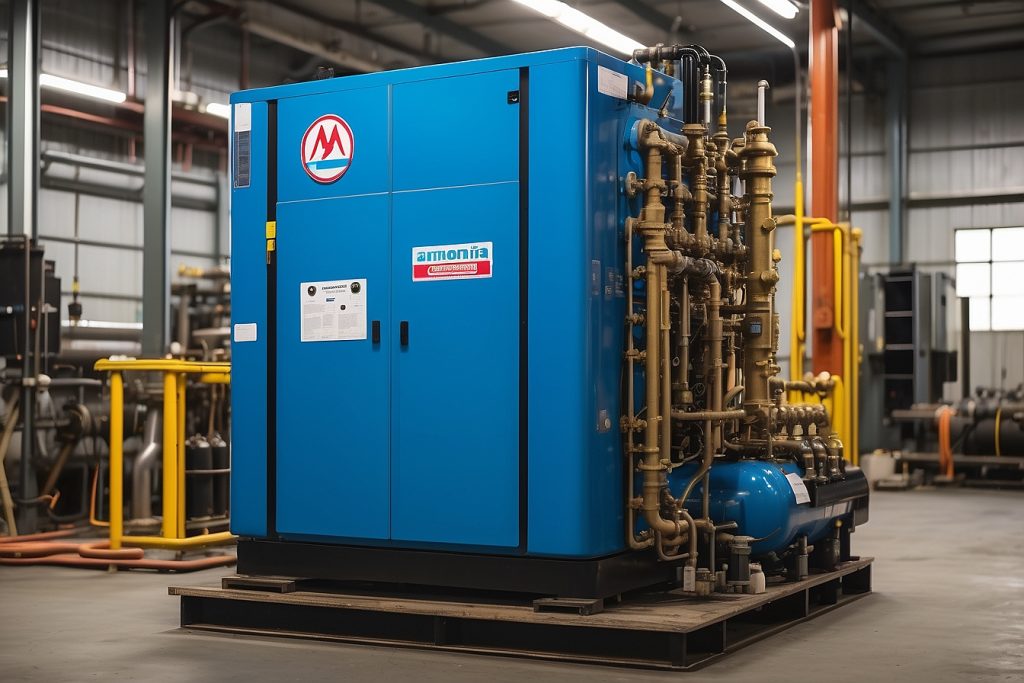
China Compressors Company relies heavily on ammonia compressors as an integral component of industrial refrigeration systems, often employing screw compressors for maintenance of cold room plants and ice-making plants. At their heart lies anhydrous ammonia which has long been revered for its efficiency in cooling.
An ammonia system works through using a control system to regulate compression and vaporization of ammonia vapor, an essential process in systems such as ammonia condensing units and evaporators that condense, expand, condense again before expanding through expansion valves to produce cooling effects.
Ammonia refrigeration requires managing potential ammonia leaks carefully to protect both yourself and others from danger. Since ammonia has its own distinctive scent, small leaks should be easily detected; nonetheless, an alarm system must be in place for safety as its effects could potentially cause irritation or be hazardous; strict standards regarding protection must also be implemented within your refrigeration system to safeguard from this irritant and potentially toxic substance.
Our company uses both high-speed and slow-speed compressors depending on their application, such as flake ice makers versus large ammonia-based refrigeration systems utilizing ammonia’s cost-cutting properties such as high latent heat of vaporization and low boiling point.
Safety must always come first in ammonia systems, from making sure ammonia valves function as intended to the full refrigeration cycle. Personnel should receive training on occupational safety and health standards in understanding its flammable and corrosive qualities.
Overall, the use of ammonia compressors, particularly in industrial settings like chemical processing or food storage, offers reliable, precision-engineered refrigeration solutions. China Compressors Company ensures that these systems are not only effective in keeping products at the right temperature but also safe and compliant with industry standards.
10 Frequently Asked Questions About Ammonia Compressor
How Often Should an Ammonia Compressor Be Maintained?
It’s important to regularly maintain an ammonia compressor. That means checking and servicing it at least once a year to keep it running smoothly and safely.
What is the Role of the Expansion Valve in an Ammonia Refrigeration System?
The expansion valve in an ammonia refrigeration system helps control how much ammonia flows into the evaporator. It’s like a gatekeeper that ensures the right amount of ammonia is used for cooling.
Can Ammonia Refrigeration Systems Be Used in Any Industry?
Ammonia refrigeration systems are most common in industries that need a lot of cooling, like food storage and chemical manufacturing. They’re not usually used in smaller or home settings.
What Makes Ammonia a Good Refrigerant?
Ammonia is a great refrigerant because it’s efficient in absorbing and releasing heat. Plus, it’s more environmentally friendly compared to some other refrigerants.
Is Special Training Needed to Operate an Ammonia Refrigeration System?
Yes, special training is needed. People who work with ammonia refrigeration systems need to know how to handle ammonia safely and what to do if there’s a leak.
How Do Ammonia Compressors Impact the Environment?
Ammonia compressors can be better for the environment than some other types. Ammonia doesn’t damage the ozone layer, but it’s still important to prevent leaks because ammonia can be harmful to people and wildlife.
What’s the Difference Between High-Speed and Low-Speed Ammonia Compressors?
High-speed ammonia compressors run faster and are usually smaller, while low-speed compressors are bigger and run more slowly. The choice between them depends on how much cooling is needed.
Can Ammonia Compressors Be Customized for Specific Needs?
Yes, ammonia compressors can be customized. That means they can be made to fit the specific cooling needs of different businesses or industries.
How Does an Ammonia Compressor Compare to Other Types of Compressors?
Ammonia compressors are specifically for refrigeration and are very efficient at cooling. Other types of compressors might be used for different things, like air conditioning or industrial work.
What Are the Long-Term Benefits of Using an Ammonia Compressor?
The long-term benefits include cost-effective operation, efficient cooling, and being more environmentally friendly compared to some other refrigeration systems.
Conclusion
Ammonia compressors play a pivotal role in large cooling systems used in places like food storage facilities and factories, helping keep everything cool by compressing ammonia, an extremely cold-making chemical, around the system. By doing this, ammonia helps maintain temperatures at very low levels throughout its entirety ensuring everything remains frosty-cold for prolonged use. Care must be taken when using ammonia compressors by regularly inspecting them, understanding its functionality and being wary of leakage issues. Furthermore, understanding different types of compressors as well as handling ammonia safely are all vitally important steps. China Compressors Company excels at this. Their track record speaks for itself – their systems demonstrate how when properly administered they can save money, consume less energy and be better for the environment. Ammonia compressors not only keep things cold; they’re essential in meeting safety and quality standards too!

